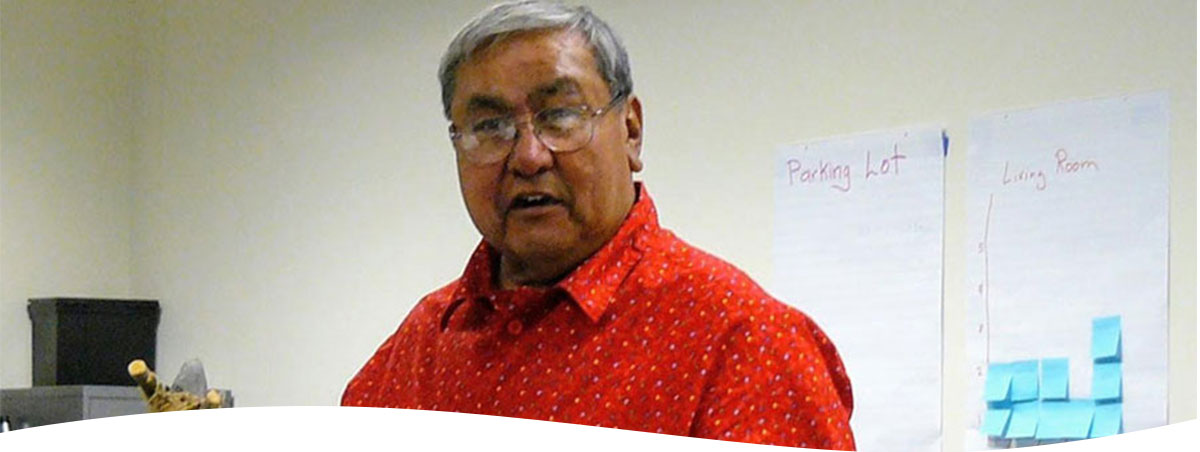 Voices of the Ancient Workshop Themes
Voices of the Ancient Workshop Themes
Inclusive American History
The indigenous people of North America are virtually invisible in the written history of this continent, especially after they were largely subjugated by European immigrants in the western hemisphere. The history of indigenous Americans simply disappears from most written records around the turn of the last century, and people who are invisible in history tend to be invisible in contemporary society. Nonetheless, indigenous people have left an incredible legacy of thriving for millennia, as evidenced at archaeological sites and from their oral history which has been handed down from generation to generation. Their descendants are some of the fastest-growing populations in the United States and Canada and they contribute to society as teachers, architects, attorneys, musicians, artists, doctors, nurses, mechanics, politicians, and a host of other important occupations. Indigenous people possess valuable cultural knowledge that can inform and improve our 21st Century world if we will learn how to listen and take action.
Climate Change and Adaptation
Both archaeology and the oral histories of descendant Native Americans have much to tell us about climate changes over the millennia and the historic adaptations people have made to these changes. Participants will explore the Voices of the Ancients as depicted through both oral history and archaeology and the remarkable adaptations that have been made to local climate changes. As an example, when horticulture was feasible in the area that is now Utah, the Fremont people lived primarily on a diet of corn and other plant cultigens supplemented by wild foods gathered from the surrounding landscape. When farming was no longer tenable, the Fremont and their descendants shifted back to a more nomadic foraging lifestyle. Both adaptations were well-suited to their time and climate.
Preservation and Stewardship
Preserving historic landmarks, historic landscapes, and archaeological sites is always a challenge in the face of growing human populations. Impacts include the development of previously untouched landscapes for homes and infrastructure, the growing need for energy from all sources, and natural forces such as fire and erosion. Participants will explore the value of historic preservation for present and future generations and the challenges of preserving these varied and important cultural resources. By protecting the cultural heritage of our communities and the entire nation, we are honoring the living descendants of those who came before us.
The Hero’s Journey
The hero’s journey provides a vehicle for entering into new landscapes, exploring cultures other than our own, and finding new ways of knowing. In his seminal book (The Hero with a Thousand Faces) Joseph Campbell explains the mythological path of the hero across cultures and time. “A hero ventures forth from the world of the common day into a region of supernatural wonder; fabulous forces are there encountered and a decisive victory is won; the hero returns from this mysterious adventure and bestows boons on his fellow man.” Both participants and instructors will step out of their everyday world to encounter the wonders of the cultural landscape, to learn from seasoned instructors and one another, and discover how to return to their lives personally enriched and professionally able to transmit new knowledge to their students and colleagues. Voices of the Ancients is designed to guide participants and instructors through a journey of difficult issues including the invisibility of indigenous Americans in history, the effects of climate change on past and present populations, and the protection of sacred and scientifically significant landscapes in the 21st Century.
